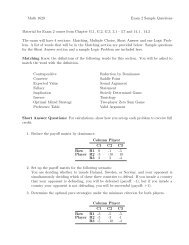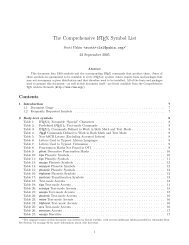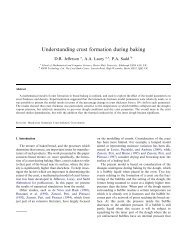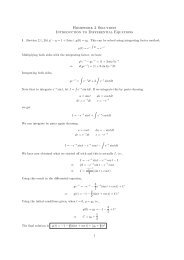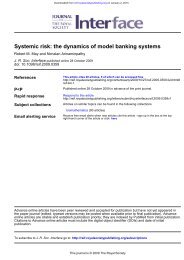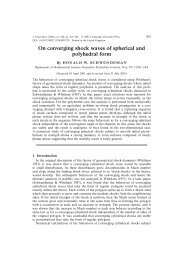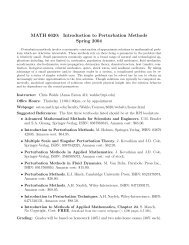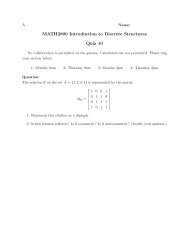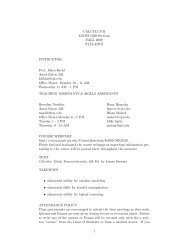ILOG CPLEX C++ API 9.0 Reference Manual
ILOG CPLEX C++ API 9.0 Reference Manual
ILOG CPLEX C++ API 9.0 Reference Manual
Create successful ePaper yourself
Turn your PDF publications into a flip-book with our unique Google optimized e-Paper software.
IloCplex::CallbackI<br />
You do not create instances of this class; rather, you use one of its child classes to<br />
implement your own callback. In order to implement your user-written callbacks with an<br />
instance of IloCplex, you should follow these steps:<br />
◆<br />
◆<br />
◆<br />
Determine which kind of callback you want to write, and choose the appropriate<br />
class for it. The class hierarchy in Tree may give you some ideas here.<br />
Derive your own subclass, MyCallbackI, say, from the appropriate predefined<br />
callback class.<br />
In your subclass of the callback class, use the protected <strong>API</strong> defined in the base<br />
class to implement the main routine of your user-written callback. (All constructors<br />
of predefined callback classes are protected; they can be called only from userwritten<br />
derived subclasses.)<br />
◆ In your subclass, implement the method duplicateCallback.<br />
◆<br />
◆<br />
Write a function myCallback, say, that creates an instance of your<br />
implementation class in the Concert Technology environment and returns it as an<br />
IloCplex::Callback handle.<br />
Create an instance of your callback class and pass it to the member function use.<br />
Note: Macros ILOXXXCALLBACKn (for n from 0 to 7) are available to facilitate<br />
steps 2 through 5, where XXX stands for the particular callback under construction<br />
and n stands for the number of parameters that the function written in step 5 is to<br />
receive in addition to the environment parameter.<br />
You can use one instance of a callback with only one instance of IloCplex. When you<br />
use a callback with a second instance of IloCplex, a copy will be automatically<br />
created using the method duplicateCallback, and that copy will be used instead.<br />
Also, an instance of IloCplex takes account of only one instance of a particular<br />
callback at any given time. That is, if you call use more than once with the same class<br />
of callback, the last call overrides any previous one. For example, you can use only one<br />
primal simplex callback at a time, or you can use only one network callback at a time;<br />
and so forth.<br />
There are two varieties of callbacks:<br />
◆ Query callbacks enable your application to retrieve information about the current<br />
solution in an instance of IloCplex. The information available depends on the<br />
algorithm (primal simplex, dual simplex, barrier, mixed integer, or network) that you<br />
are using. For example, a query callback can return the current objective value, the<br />
number of simplex iterations that have been completed, and other details. Query<br />
<strong>ILOG</strong> <strong>CPLEX</strong> <strong>C++</strong> <strong>API</strong> <strong>9.0</strong> REFERENCE M ANUAL 99


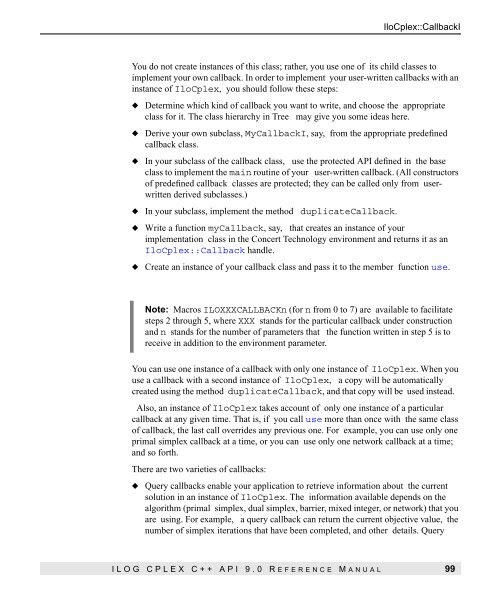
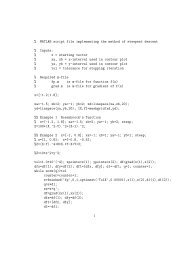

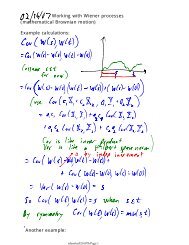

![MATH 1500 Sample Questions Exam 2 1. [3.7] A 10-ft plank is ...](https://img.yumpu.com/43861920/1/190x245/math-1500-sample-questions-exam-2-1-37-a-10-ft-plank-is-.jpg?quality=85)
